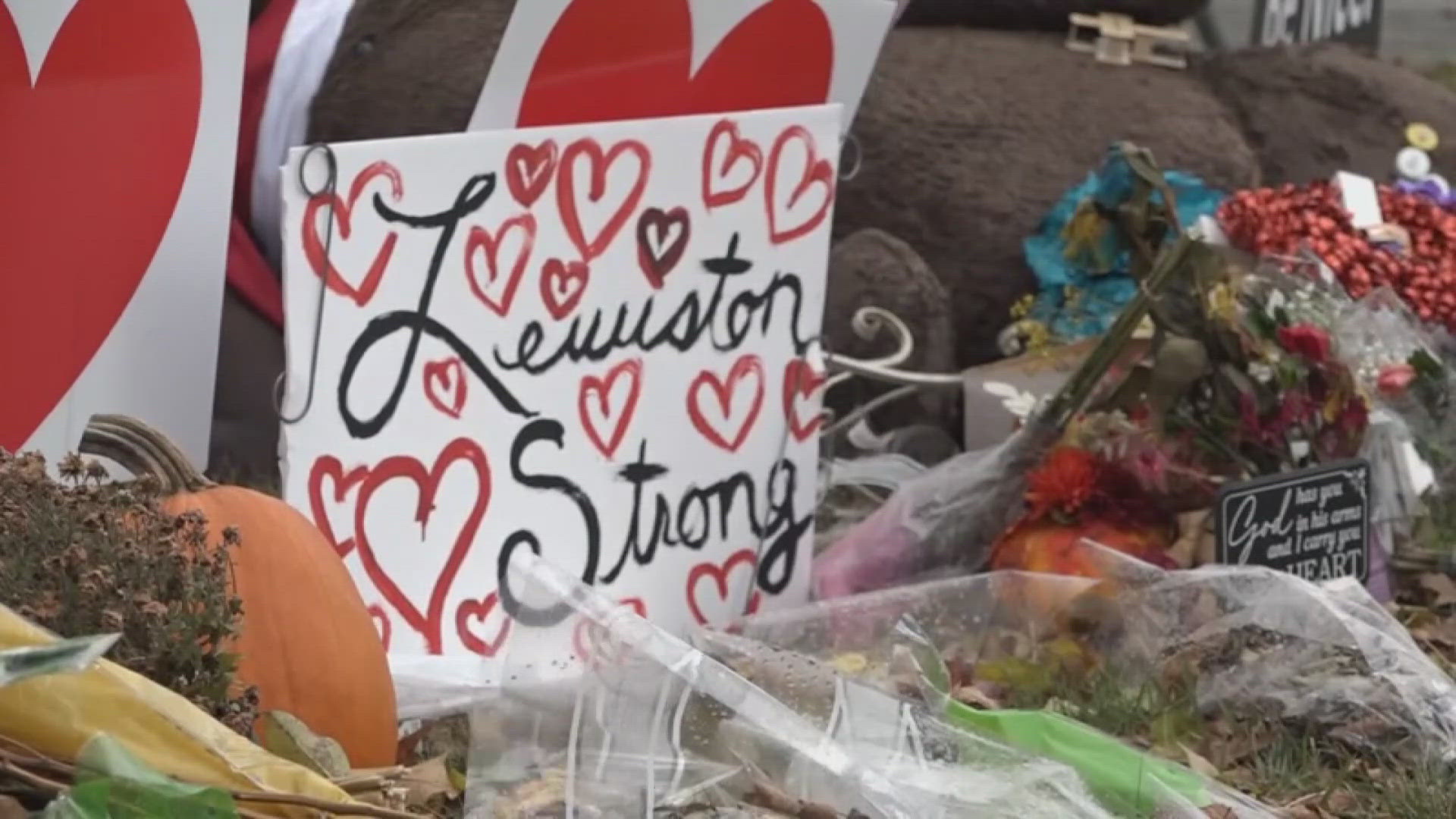LEWISTON, Maine — The Lewiston community has felt an immeasurable amount of grief over the past six months after a lone gunman tragically killed 18 people and injured 13 others the night of Oct. 25.
Families and survivors of the senseless shooting have had to come to grips with their new realities, whether mourning the loss of a loved one or relearning how to button their shirt after suffering injuries. While many are on the path to healing, families have acknowledged the people behind the scenes who have given them the support and foundation to find peace: victim witness advocates.
The stories of families and survivors have been highlighted over the course of the past six months, but members of the victim services team at the Maine attorney general's office sat down with NEWS CENTER Maine to share how they, too, have handled their job in what could be considered the most trying time in our state's history.
"We knew it was going to look different. We knew that there were going to be longer days. We knew it was going to take a really collaborative effort to simultaneously provide support," Jamie Miller, a victim advocate at the AG's office, said.
Victim advocates are accustomed to helping families involved in homicide cases, but the Lewiston mass shooting surpassed anything advocates in Maine have dealt with before.
Advocates from Maine and beyond state lines responded to the Family Assistance Center in Lewiston, which opened in the days following the shooting. However, in the midst of an ongoing manhunt for the gunman and an unfolding investigation, advocates had to adjust the way they conducted their work.
"We were developing a response and what that protocol would look like as we went along," Miller said. "Ensuring that the same level of support and service and care and concern would be met regardless of the number of families were going to be working with."
Advocates with the AG's office have served 132 family members related to the 18 people who died, Director of Victim Services Cara Cookson said. In addition to the sheer number of people impacted directly, Cookson said 87 people witnessed the shootings but were able to make it out uninjured. Many of those survivors are learning to cope with survivor's guilt and psychological trauma, she said.
At the time of the incident, more than half of Maine's victim advocates had fewer than five years of work experience. Cookson said she never doubted their capabilities, but she worried about the emotional toll it would take on them, too.
"They are so skilled, so compassionate, so confident in the work that they do, and I knew that most of them had never seen anything like this before," she said. "It’s a lot to witness the sorts of things that people have witnessed, to hear the stories that people have heard."
Advocates with the AG's office have been working with the 16 families impacted, with four advocates each assigned to serve four families. To manage the caseload, advocates from around the state have taken on working with injured victims and those who were present but not physically injured.
"It’s a huge responsibility to be entrusted to take care of people and support people in some of the most difficult moments of their lives," Cookson said. "Knowing the scale and the scope of the harm, I felt a huge amount of responsibility to make sure that we didn’t cause more harm in the process. I carry that weight every day. I continue to carry that weight as we continue working with people."
Several families who lost loved ones testified Feb. 1 before the Independent Commission tasked with investigating the facts of the tragedy. Many commended the advocates who have helped them navigate their loss. Cookson later testified to the commission on the day of the shooting's six-month anniversary.
After her testimony, commissioners applauded all advocates who had stepped up for hundreds of people needing assistance in a time of such immense loss. Commissioner Dr. Debra Baeder called their efforts "Herculean."
"It feels good to be acknowledged, and at the same time, we really want to see the spotlight put on the victims and survivors and the community and the people who are impacted most," Cookson said. "The way that they continue to show up every day, all of the work that they’ve done to support their own healing, that’s the real herculean effort in my view."
It's uncertain how each individual will internalize what they've experienced, including the advocates themselves.
"The work can be hard, but the impact that we have the ability to have in people's' lives is certainly what keeps us, keeps me, in the work," Miller said. "Really, it's a privilege to be able to walk alongside families in some of the most difficult times in their lives, and I remind myself of that privilege every day."
The Maine Resiliency Center, which was established nearly three weeks after the shooting, remains open to the public. It offers a plethora of resources, such as support groups and community nights, helping those impacted find a sense of community.
If you need support during this time, the center holds walk-in hours from 3 to 6 p.m. Tuesday through Wednesday. Call 207-515-3930 to make an appointment.
If you or someone you know is experiencing suicidal thoughts, there are resources right here in Maine that can help navigate through those thoughts and find a path to hope.
Maine Crisis Hotline: 1-888-568-1112

